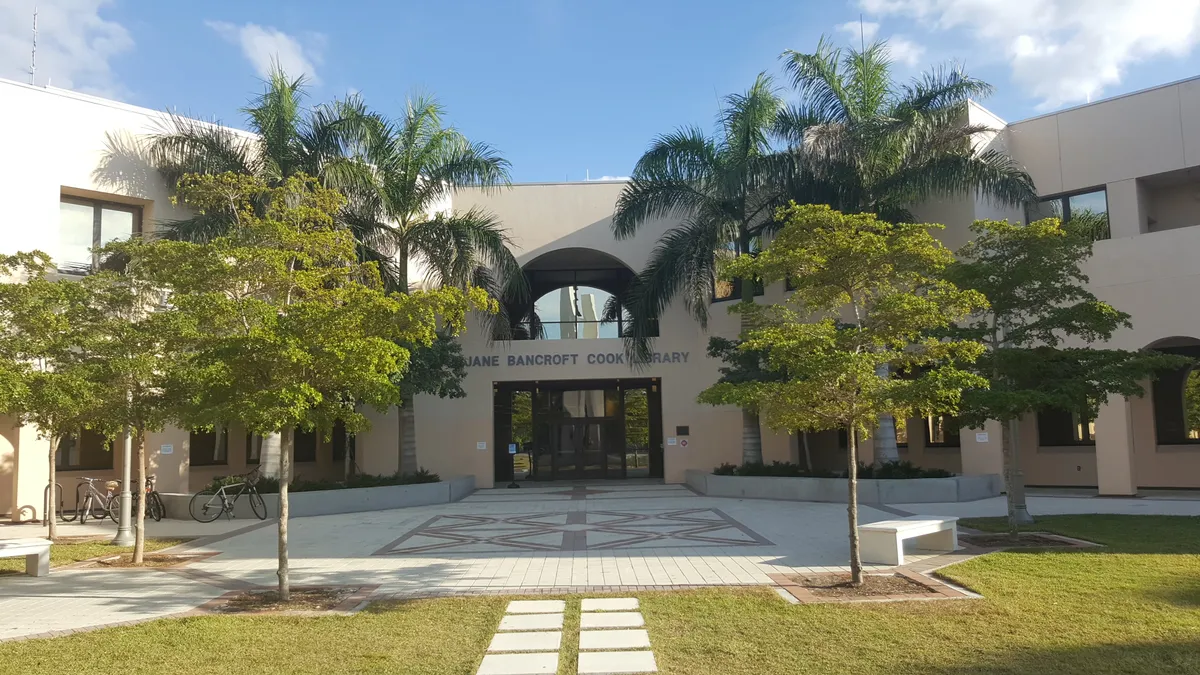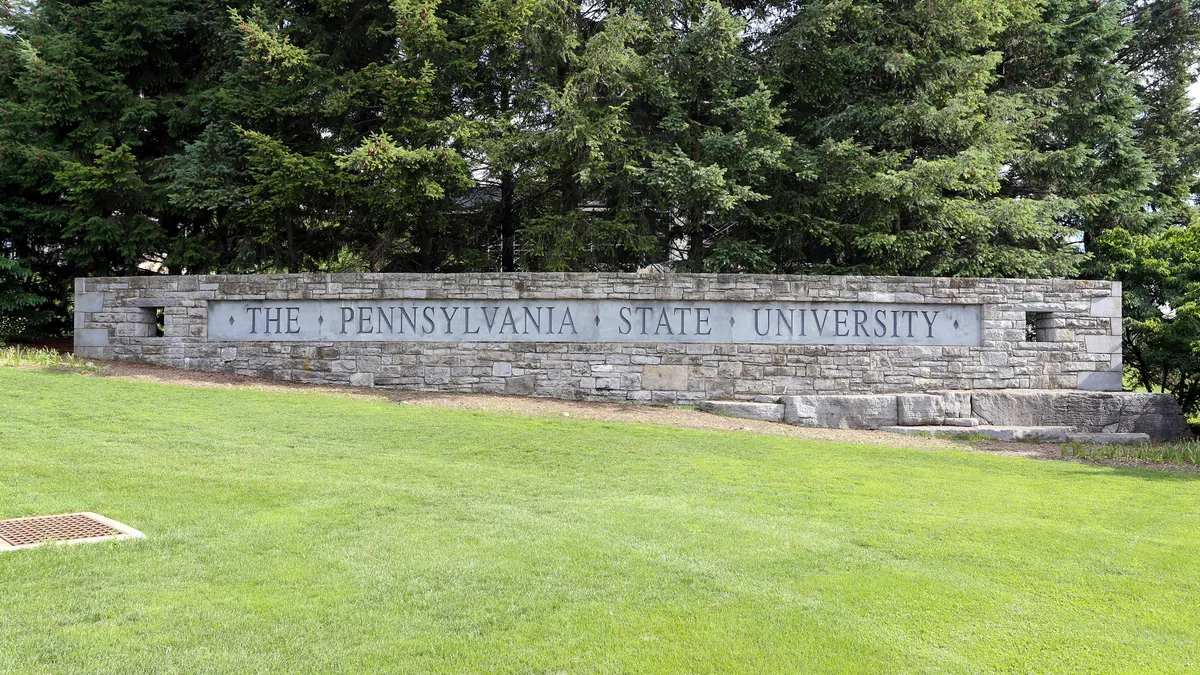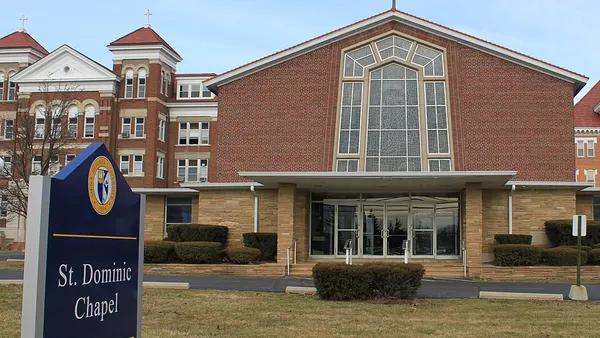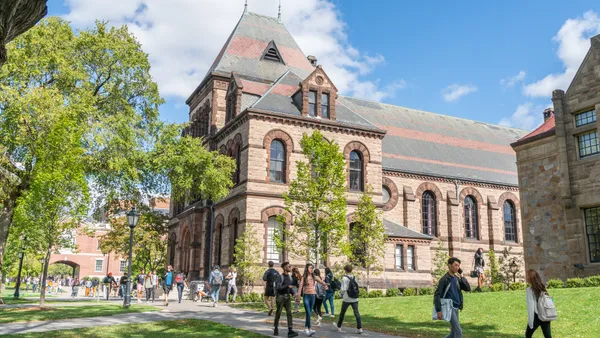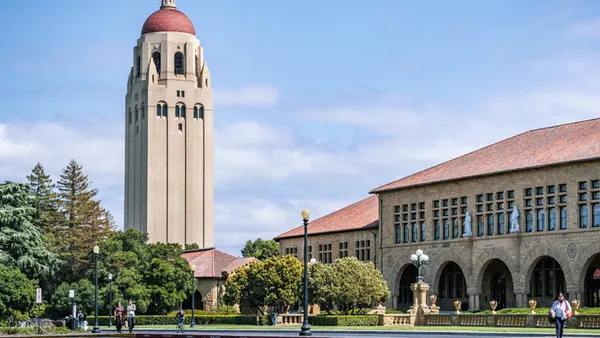Dive Brief:
- The New College of Florida’s trustee board on Thursday approved plans to provide up to $1.5 million in total compensation to its next permanent leader, potentially making the position one of the highest paid presidencies at a Florida public institution.
- The 11-2 vote gave trustees a range with which to negotiate, with the lower end starting at a $487,110 base salary and $893,641 in total compensation, which includes bonuses, retirement contributions, and housing and vehicle allowances. The upper end of the range includes a base salary as high as $867,777.
- Although New College is a public liberal arts institution, the peer institutions trustees benchmarked it against are largely private nonprofits. A list of 13 comparable colleges used to compile the range includes Hillsdale College, a Christian college in Michigan, and Bethune-Cookman University, a private historically Black college in Florida.
Dive Insight:
Florida Gov. Ron DeSantis, a Republican challenger in the 2024 presidential election, has been attempting to align the state’s public higher education with his political principles. Part of this plan includes overhauling New College, previously a liberal haven, into a bastion of conservative ideals.
Earlier this year, DeSantis removed six of the New College’s 13 trustees and appointed conservative allies to replace them. That board then ousted the college’s president, Patricia Okker, and replaced her on an interim basis with Richard Corcoran, the state’s former education commissioner.
New College’s presidential search committee contracted with consulting company Mercer to develop a compensation range. Mercer assembled a group of 13 peer institutions, all of which have significantly higher enrollment than the roughly 675-student New College, according to a presentation provided to the board.
Some of New College’s trustees argued that the compensation range was too high. They also pushed back against some of the institutions that were selected as peers, such as High Point University. The president of High Point, which is affiliated with the United Methodist Church, has a total compensation package of $2.1 million and a base salary of $828,639, according to the presentation.
Trustee Grace Keenan, the president of the New College’s student government, noted that the compensation of High Point’s president threw off the suggested compensation range.
“I’d be very interested to see where we’d end up without that,” Keenan said during the Thursday meeting.
The peer group is wide ranging, from other Florida colleges like the more than 9,000-student University of Tampa to highly selective colleges like Grinnell College, an Iowa institution with a roughly $2 billion endowment. In contrast, New College has just a $44 million endowment.
The suggested range would provide New College’s next leader with total compensation between roughly $894,000 and just over $1.5 million.
In comparison, the interim president’s total potential compensation is as high as roughly $1 million, including a base salary of $699,000. He also receives up to a 15% annual performance bonus, housing and auto allowances, and retirement benefits. Meanwhile, the previous New College president had a base salary of $305,000, according to the Sarasota Herald-Tribune.
However, several trustees stressed that higher compensation would be needed to attract candidates who would be up to the task of transforming New College, as well as those coming from the private sector.
It’s time for New College to benchmark against the market it wants to compete in, said Trustee Mary Ruiz.
If the new president receives total compensation on the upper end of the suggested range, they could become the highest paid leader of a public Florida university, according to the presentation.
Ben Sasse, president of University of Florida, is currently the highest paid leader, with total compensation reaching nearly $1.4 million, according to Mercer’s findings. The next highest paid is Rhea Law, president of University of South Florida, whose total compensation exceeds $1 million.
So far, around 60 candidates have applied to the position, Trustee Matthew Spalding said during the meeting.



